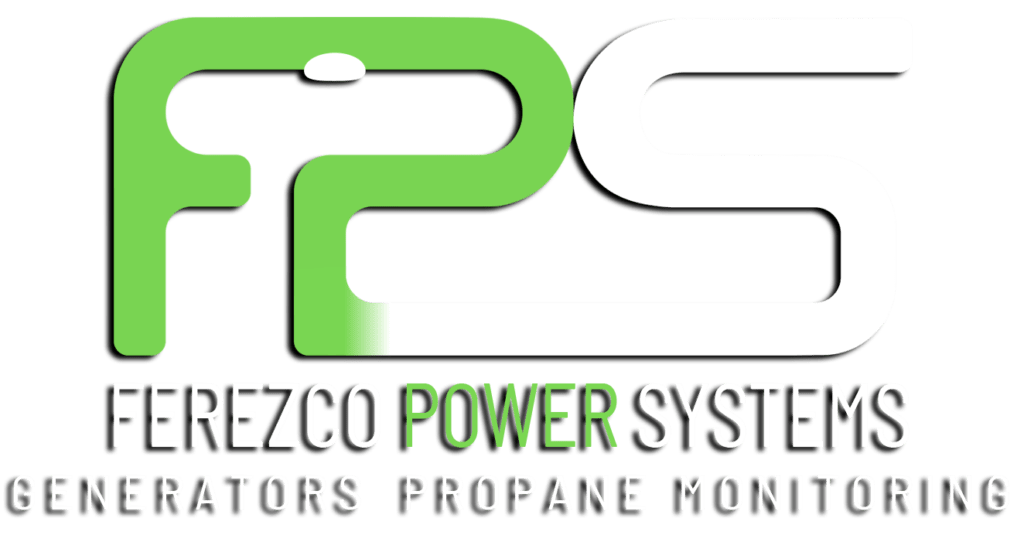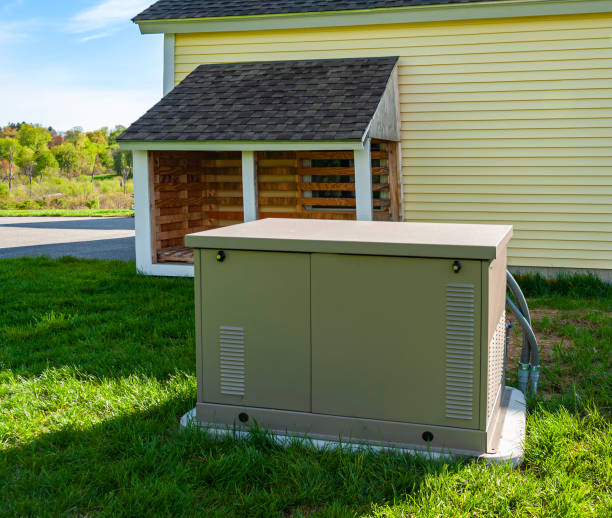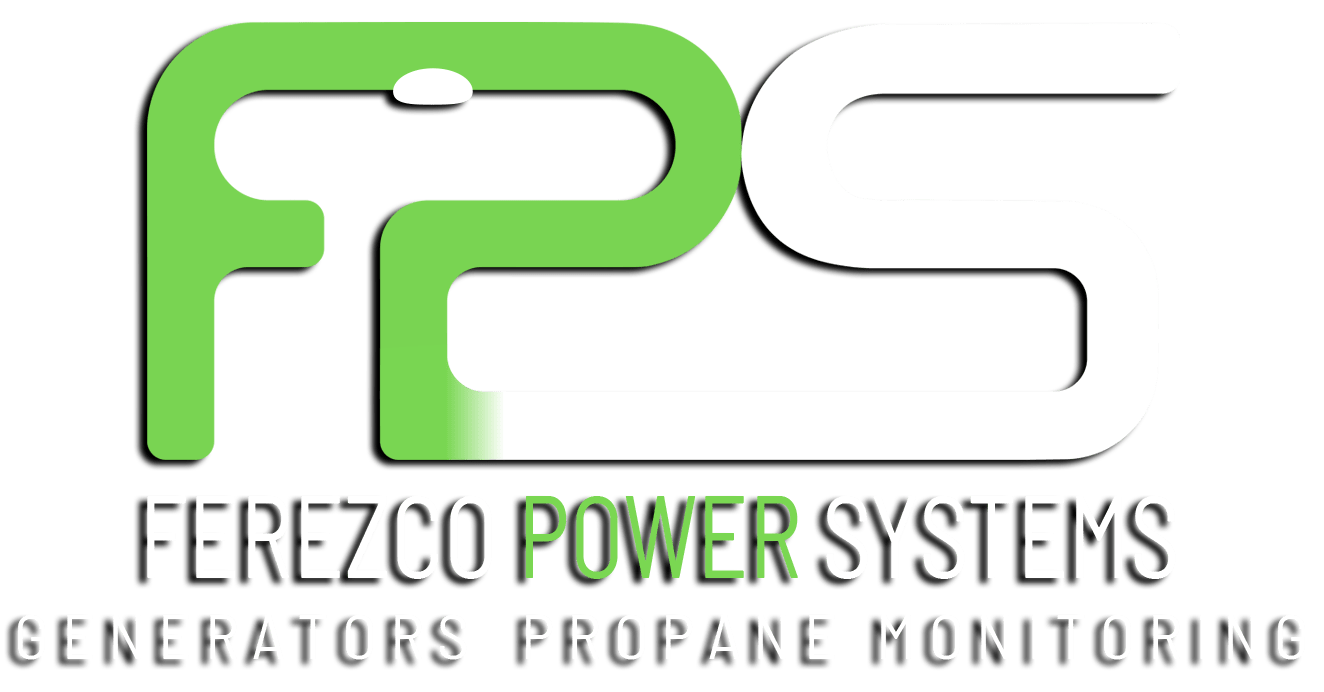When the lights go out, a good generator can keep your home humming smoothly. Thinking about getting one?
It’s important to pick the right type, whether it’s a portable unit for basic needs or a standby generator for the whole house. If you’re in San Antonio, TX and looking for reliability, Ferezco Power Systems offers great options.
Before you buy, think about what you really need to keep running—just the essentials or everything including that big TV for game day? Also, consider how often you lose power. Is it just now and then, or does it happen a lot?
Knowing what you need helps you choose the right generator without spending so much of your time. Always check the wattage requirements of your appliances to make sure your generator matches your needs. Stay powered up safely and smartly with the right generator for your home!
Assessing Your Needs
Here’s how to decide if a generator is right for you and what type might best suit your lifestyle, especially if you’re living in the areas of San Antonio, TX where the weather can be unpredictable.
First, consider how often and why you lose electricity. Is it mostly during major storms, or do you experience frequent, short outages? If you find yourself in the dark more often than not, investing in a generator could save you from many inconveniences.
Next, think about what you need to keep running when the power goes out. For some, it might be essential to operate medical equipment or to ensure the refrigerator keeps cooling. Others might want the comfort of using all household appliances without interruption. Make a list of the essentials: do you need to keep the lights on, the water hot, and your devices charged? Or do you want a seamless experience where even the air conditioning and television remain functional?
Assessing your power needs helps in selecting the size of the generator. Generators vary greatly in capability, from smaller portable models that can power a few essentials to large standby units that can handle an entire home’s energy needs. For instance, portable generators are less expensive and can cover basic needs like keeping your fridge running and lights on. On the other hand, standby generators are pricier but start automatically during an outage and can power everything in your home.
Budget is also crucial. Knowing what you can afford upfront and the cost of ongoing maintenance, including fuel, can help you make a sustainable choice. Remember, the right generator isn’t just about the largest or most powerful one; it’s about what fits your specific needs without overspending.
If you’re considering a generator for your San Antonio, TX home, Ferezco Power Systems offer reliable options tailored to a variety of needs and budgets. Assessing your power requirements and understanding the types of generators available will guide you to the right choice, ensuring that when the lights go out, your home keeps humming.
Related: How Big of a Generator Do I Need to Run a House?
Types of Generators
Always be careful before buying a generator for your home, it’s important to understand your home needs and different types available to find the best match. Here’s a breakdown of the main types of generators, especially helpful for residents, where weather can be unpredictable.
Portable Generators
Portable generators are the go-to solution for quick, emergency power needs during short-term blackouts. These generators are cost-effective, easy to move, and simple to set up, making them excellent for powering essential household items such as refrigerators, lights, and small appliances. They typically run on gasoline or propane, offering a convenient power source when you need it most. However, it’s important to note that portable generators are not suitable for powering an entire house. They require manual start-up and continuous fuel management, making them ideal for temporary use during specific situations where less energy is sufficient.
Standby Generators
Standby generators are designed for homeowners who need an uninterrupted power supply during outages. These units are installed permanently, providing a seamless transition to generator power automatically when the electricity from the grid fails. Standby generators are typically powered by propane or natural gas and are more expensive than their portable counterparts. They are particularly valuable in areas prone to frequent or prolonged blackouts, offering peace of mind by maintaining all household functions—from heating and cooling systems to kitchen appliances and lighting—without manual intervention.
Inverter Generators
Inverter generators are the refined version of traditional portable generators, known for their efficiency and quieter operation. These generators are ideal for powering sensitive electronic devices such as laptops, televisions, and medical equipment because they produce cleaner energy with fewer fluctuations. Inverter generators are more fuel-efficient and operate at lower noise levels, making them suitable for both residential and recreational uses. Although they generally have lower power output compared to other types of generators, their portability and the quality of power output make them a favored choice for activities requiring mobility and minimal disruption.
Solar Generators
Solar generators offer a sustainable and eco-friendly solution to power needs, harnessing solar energy to provide electricity. These generators use photovoltaic panels to collect solar energy, which is then stored in batteries for later use. Solar generators are silent and produce no emissions, making them ideal for environmentally conscious consumers. While they require a significant initial investment and are dependent on sunlight for recharging, solar generators are incredibly beneficial for long-term savings and are perfect for areas with ample sunshine. Their ability to provide power without ongoing fuel costs or pollutants makes them an increasingly popular choice among eco-minded individuals.
Related: Top 10 Colors of Electrical Wires: The Basics
Best Generators Brands
The right brand is crucial for reliability and efficiency. Ferezco Power Systems stands out as a #1 provider, offering a range of top-quality generators in San Antonio, Texas suited for various needs. Here’s a look at some of the best options available:
1. Cummins Generators:
Cummins is a globally recognized leader in power generation technology, renowned for its durable and high-performing generators. Their range includes models perfect for residential use, offering reliable power solutions designed to handle varying demands. The Cummins 150kW Diesel Generator, for instance, is an excellent choice for larger homes or those with higher power needs. It features advanced sound-attenuated housing to reduce noise pollution and comes equipped with a 48-hour fuel tank, ensuring continuous operation during extended outages. This model is also TCEQ-approved, meeting strict environmental standards, making it a responsible choice for environmentally conscious homeowners.
For smaller homes or fewer power requirements, the Cummins 40kW Diesel Generator offers efficient power in a compact size with sound attenuation to reduce noise, ideal for residential areas.
2. Caterpillar Generators:
Caterpillars are synonymous with robust and reliable heavy machinery and their generators are no exception. The Caterpillar 60kW Diesel Generator is specially designed for residential applications requiring a dependable power source. This generator offers a solid balance of durability and performance with a sound-attenuated housing to keep operational noise to a minimum and a 24-hour fuel tank for prolonged power supply. Its 208-volt system is ideal for homes needing a substantial, continuous power supply, capable of supporting essential home functions without interruption during power outages.
3. Automatic Transfer Switches (Zenith):
Automatic Transfer Switches (ATS) are essential for integrating a generator into your home’s power system seamlessly. The 800 Zenith Automatic Transfer Switch is versatile, accommodating both three-phase and single-phase inputs. This switch allows for a multi-voltage setup, which is crucial for homes with varying voltage requirements across different areas or appliances. It ensures that the transition from the main power supply to the generator is smooth and immediate, preventing any interruption in electrical service. The Zenith ATS is ideal for those who prioritize continuous power during outages and value an automated solution for their energy needs.
Considerations for Generator Size
Power outages can be frequent due to weather conditions, it’s important to choose one that fits your specific power needs without overextending your budget. Here’s how you can determine the right size for your generator:
1. Determine Your Power Needs:
The first step in selecting a generator is to evaluate how much power you actually need during an outage. Start by making a list of essential appliances and systems that you need to keep running. This typically includes refrigeration, HVAC systems, water pumps, and lighting. Each appliance has a power rating usually expressed in watts, which can be found on the product label or in the user manual.
Calculating Wattage Requirements:
- Starting vs. Running Wattage: Some appliances, like air conditioners or refrigerators, require more power at startup (starting wattage) than they do to continue running (running wattage). It’s important to account for these differences.
- Add Safety Margin: Once you have the total wattage needed to run your critical appliances, add a safety margin of about 20% to the total. This extra cushion helps prevent overloading the generator, which can cause it to fail or shorten its lifespan.
2. Choose the Right Type of Generator:
Portable Generators: These are suitable for less frequent outages or when you only need to power a few essentials. They’re more affordable but require manual setup and monitoring during use. Standby Generators: These are integrated into your home’s electrical system and automatically turn on when power is lost. They’re ideal for areas with frequent, prolonged outages and can handle higher power loads.
3. Consider Fuel Type and Efficiency:
Generators run on various fuels, including:
- Gasoline: Common for portable generators but requires frequent refueling and proper storage of fuel.
- Diesel: Known for efficiency and longer running times; ideal for larger, standby generators.
- Propane: Offers a long shelf-life and clean burning; suitable for both portable and standby generators.
- Natural Gas: Hooks directly into your home’s gas line, providing a limitless fuel source for standby generators, eliminating the need for refueling.
Each fuel type has its benefits and limitations, especially regarding availability during widespread outages and storage safety.
4. Installation and Maintenance Considerations:
Installing a generator is not a DIY project. It requires professional installation to ensure it complies with local building codes and operates safely. Regular maintenance is also crucial to ensure the generator operates efficiently when needed. This includes routine checks and servicing as recommended by the manufacturer.
5. Environmental and Noise Considerations:
Standby generators often require sound attenuation solutions to mitigate noise, as they can be quite loud during operation. Additionally, consider the environmental impact of your chosen generator, particularly in terms of emissions regulations in your area.
By carefully assessing your needs, choosing the right type of generator, considering fuel options, and understanding installation and maintenance requirements, you can select a generator that provides reliable power without exceeding your budget or space constraints. This comprehensive approach ensures you choose a generator that not only fits your immediate needs but also serves you reliably over the years.
Budget Considerations
Portable generators are more affordable, typically ranging from $500 to $1,500, suitable for basic needs like lighting and small appliances. In contrast, standby generators cost between $3,500 and $7,000, providing a seamless power transition for the entire house. Remember, the initial purchase is just part of the cost; consider fuel expenses and maintenance too. Opting for a generator that matches your critical requirements ensures you invest wisely, balancing cost with the convenience of reliable power during outages.
Installation and Safety
Installing a home generator, ensuring safety and compliance with local regulations is paramount. Professional installation is recommended to properly manage the complexities of high voltage and various fuel sources, which can be hazardous if not handled correctly. For portable generators, it’s crucial to position them outdoors, away from any windows or vents to prevent carbon monoxide from entering the home. These generators should never be operated inside, including garages or sheds, even with doors open, as carbon monoxide poisoning can be fatal.
Standby generators, on the other hand, need a permanent, clear space for installation, ideally away from living areas. They are equipped with an automatic transfer switch that safely activates the generator when power fails, ensuring continuous power without manual intervention. Regular maintenance checks are essential to ensure the generator functions correctly when needed. This includes inspecting fuel lines for leaks, testing the unit periodically, and ensuring that all connections are secure.
Always adhere to the manufacturer’s guidelines and local codes for installation and operation. Proper grounding and the use of a circuit breaker are vital to prevent overloads and potential fires.
Generator safety tips
A generator safely is esstionall to prevent accidents and ensure efficient operation. Here are essential safety tips for handling generators:
- Always use generators outdoors, away from windows, doors, and vents to prevent exhaust gases from entering the home. Carbon monoxide (CO) from the generator is invisible, odorless, and can be fatal.
- Equip your home with CO detectors on every level, especially near sleeping areas, to alert you to dangerous CO levels.
- Never operate a generator inside homes, garages, basements, or any enclosed or partially enclosed spaces.
- Operate the generator on a dry surface under an open, canopy-like structure. Avoid using it in wet conditions. If you must use a generator in wet conditions, do so with a waterproof cover that does not impede airflow.
- Ensure the generator is well-ventilated. Improper ventilation can cause harmful gases to build up.
- Store fuel for the generator in approved safety containers, outside of living areas, and away from fuel-burning appliances. Always let the generator cool down before refueling to avoid ignition of gasoline vapors.
- Plug appliances directly into the generator using heavy-duty, outdoor-rated cords with a wire gauge adequate for the appliance load. Avoid plugging the generator directly into a household outlet to prevent back-feed, which can electrocute utility workers or others using the same utility transformer.
- Ensure your generator is properly grounded to avoid electrical shocks. Refer to the manufacturer’s manual for grounding instructions.
- Regular maintenance is vital for the safety and longevity of your generator. Check oil levels, air filters, and fuel systems according to the manufacturer’s instructions.
- Always turn the generator off and let it cool before refueling to minimize the risk of fire.
Conclusion
The right generator for your home in San Antonio and surrounding areas involves considering your power needs and the types of generators available. Ferezco Power Systems is your go-to source for generator solutions in San Antonio and surrounding areas. We specialize in the sale of high-quality generators tailored to meet your home’s power needs, whether you’re looking for portable or standby models. Our expert team provides comprehensive services, including professional generator installation, repairs, and regular maintenance to ensure your generator operates efficiently. With our in-depth knowledge and commitment to customer satisfaction, we offer personalized consultations and support, making us a trusted provider for all your generator requirements in San Antonio and nearby cities. Call Ferezco for dependable power solutions.
People Also Ask
What types of generators does Ferezco Power Systems sell?
Ferezco Power Systems offers a variety of generators, including portable and standby models, to ensure your home stays powered during outages. We can help you decide which type is best for your needs based on how often you lose power and what you need to keep running.
Can Ferezco Power Systems help install my generator?
Yes, our team provides professional installation services for all the generators we sell. We make sure your generator is set up safely and ready to operate, so it’s ready whenever you need it.
What maintenance and repair services does Ferezco Power Systems offer?
Ferezco Power Systems offers comprehensive maintenance and repair services to keep your generator in top condition. Whether you need routine upkeep, troubleshooting, or repairs, our experienced technicians are here to ensure your generator works reliably for years.
Does Ferezco Power Systems serve areas outside of San Antonio?
Yes, we serve not only San Antonio but also the surrounding cities. If you’re near San Antonio and need a generator or services, give us a call to see how we can help.




